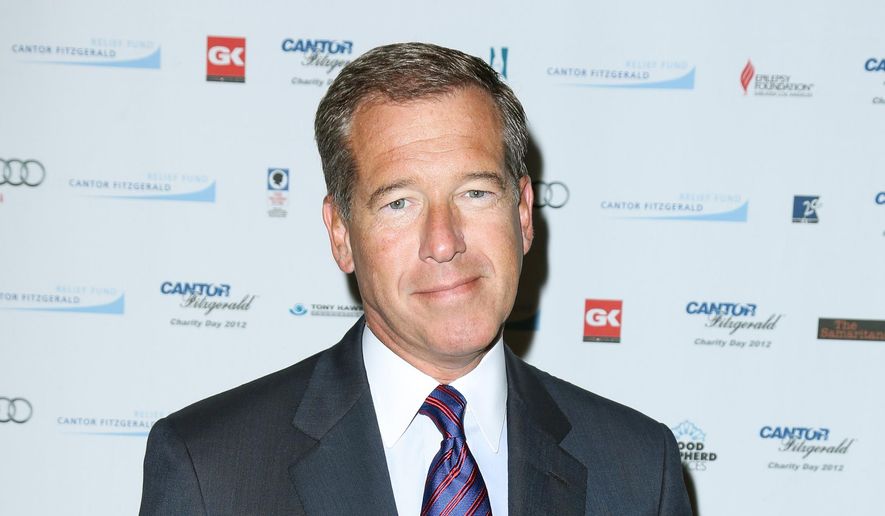OPINION:
ANALYSIS/OPINION:
In the quintessential film about television journalism, “Broadcast News,” a producer scolds a reporter for staging a teary scene in a hard-news story.
“You totally crossed the line,” she yells.
“It’s hard not to cross it,” he replies calmly. “They keep moving the little sucker, don’t they?”
NBC almost stopped moving the little sucker but didn’t quite get it right by suspending anchorman Brian Williams for six months without pay. The network should have fired Mr. Williams. Then that important ethical line would have become a solid wall for those who tried to get away with lies — not misremembering or “conflating.”
Steve Burke, CEO of NBCUniversal, said in a statement, “By his actions, Brian has jeopardized the trust millions of Americans place in NBC News. His actions are inexcusable and this suspension is severe and appropriate.”
Stars and Stripes first reported the NBC anchor’s serial falsehoods about coming under fire in a helicopter in Iraq in 2003.
But with each passing day, more lies appeared. His award-winning coverage of Hurricane Katrina in 2005 came under scrutiny. He told versions that included a corpse floating by his hotel in the French Quarter, which sustained little flooding. He alleged he saw someone commit suicide in the New Orleans Superdome. He got dysentery and faced gangs at his hotel. Even the manager at the hotel, the Ritz-Carlton, disputed many of his “facts.”
Then Mr. Williams told a variety of stories about his adventures in Israel during the war with Hezbollah in 2006. The NBC anchor reported that he saw Katyusha rockets fly just beneath his helicopter. Later, he said the rockets came from 6 miles away. Moreover, he said he asked an Israeli general whether Hezbollah could aim the rockets at the helicopter. Almost anyone who has ever covered a war knows Katyusha rockets are used to fire at ground troops, not aircraft.
Although some news organizations took Mr. Williams to task for his ethical breaches, some questionable analysis spread through the fog of journalism in his defense.
Big names such as Dan Rather, a former anchor for CBS News, and Piers Morgan, formerly of CNN, circled the wagons. The New York Times, which seemed determined to get Mr. Williams back to the anchor chair, and other news outlets picked up on the “false memory” meme.
“[F]alse memories can be incorporated into our memory bank, embedded so deeply that we become convinced they are real,” The Times reported. Unfortunately, the story dealt only with the Iraq fish tale and the specialists never personally evaluated Mr. Williams.
As a foreign correspondent for Newsweek and ABC News in the Middle East, I vividly remember the six times I came close to serious injury or death.
Every journalist makes mistakes. That is why journalism is called the first rough draft of history. Beyond that, all a journalist has is his or her credibility. Once that has been lost — as Mr. Williams has lost his — it is time to find another line of work.
Here are only a few of the serious violations Mr. Williams committed under the Society of Professional Journalists’ Code of Ethics:
• “[Journalists should] take special care not to misrepresent or oversimplify in promoting, previewing or summarizing a story.”
• “Never deliberately distort facts or context.”
• “Explain corrections and clarifications carefully and clearly.”
It’s time to stop moving that little sucker of an ethical line. Mr. Williams should never be restored to the anchor desk if NBC’s news division wants to retain any credibility. Otherwise, he and the network will become prime examples of why the public can no longer trust journalists to tell the truth.
• Christopher Harper is a longtime reporter who teaches journalism at Temple University. He can be contacted at charper@washingtontimes.com and followed on Twitter @charper51.




Please read our comment policy before commenting.